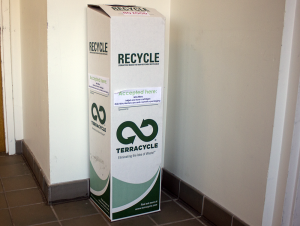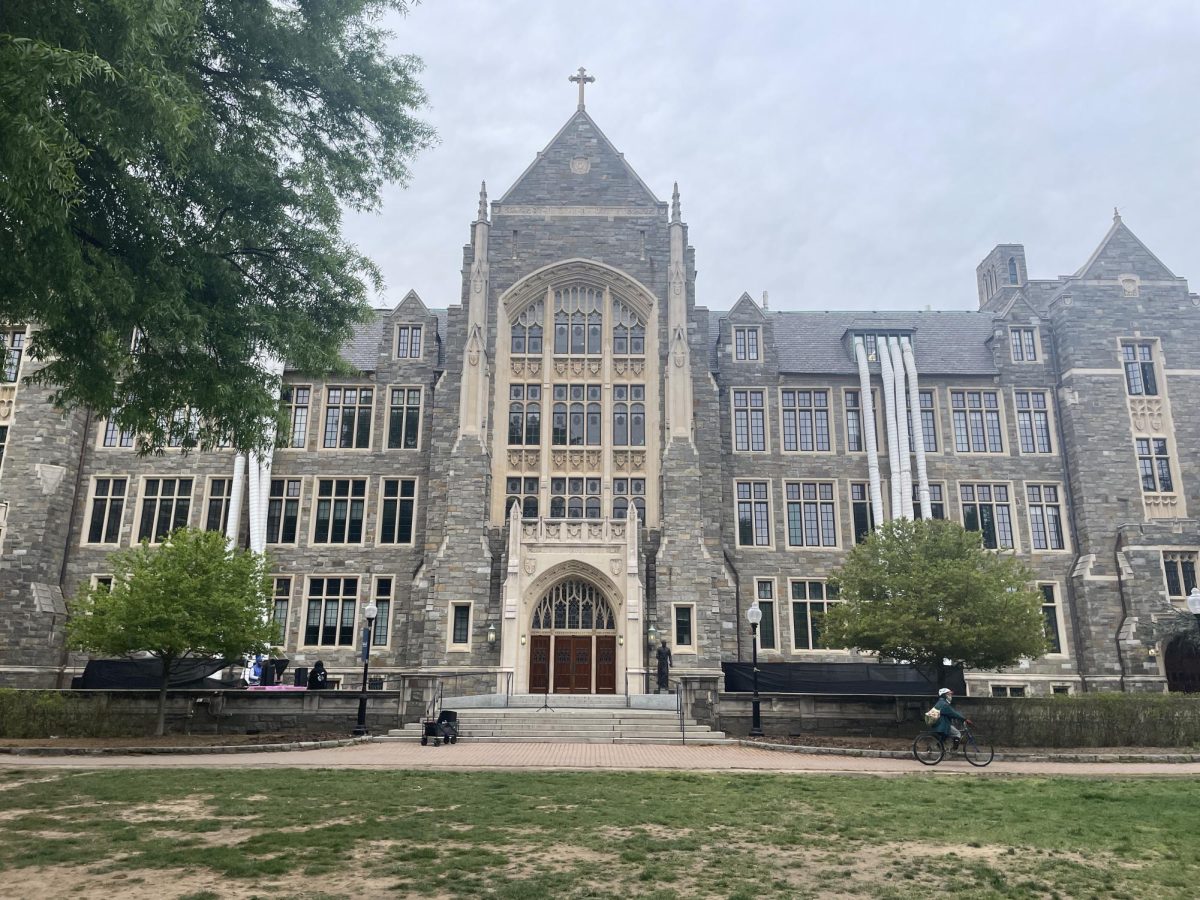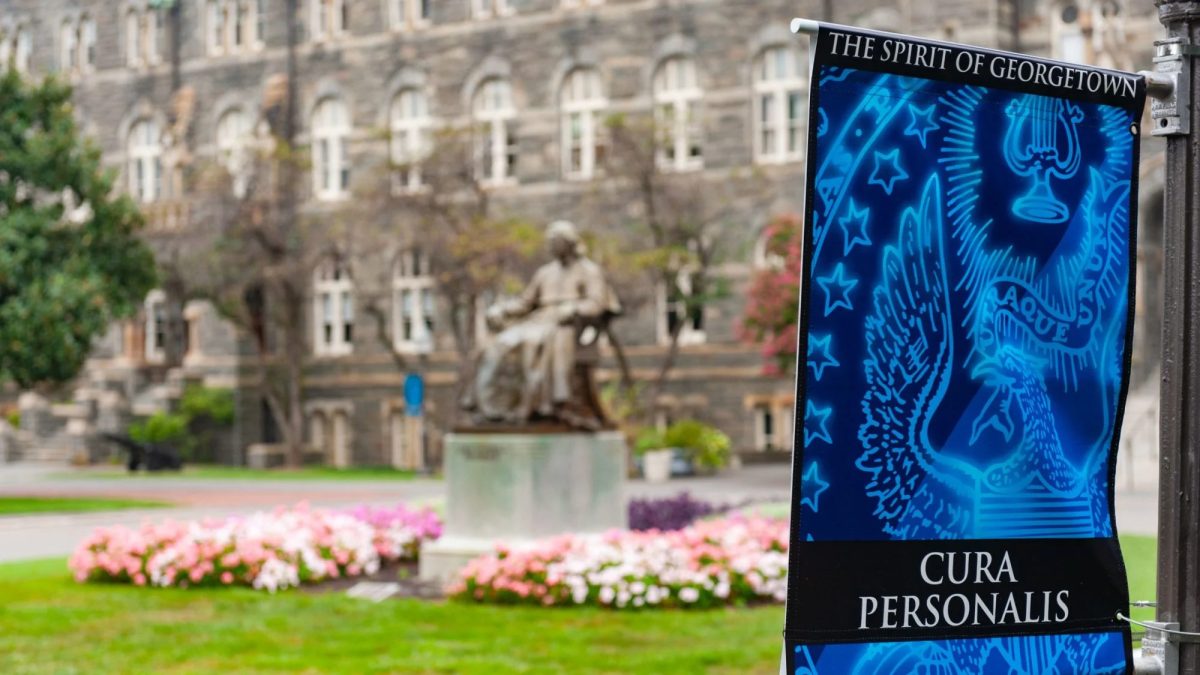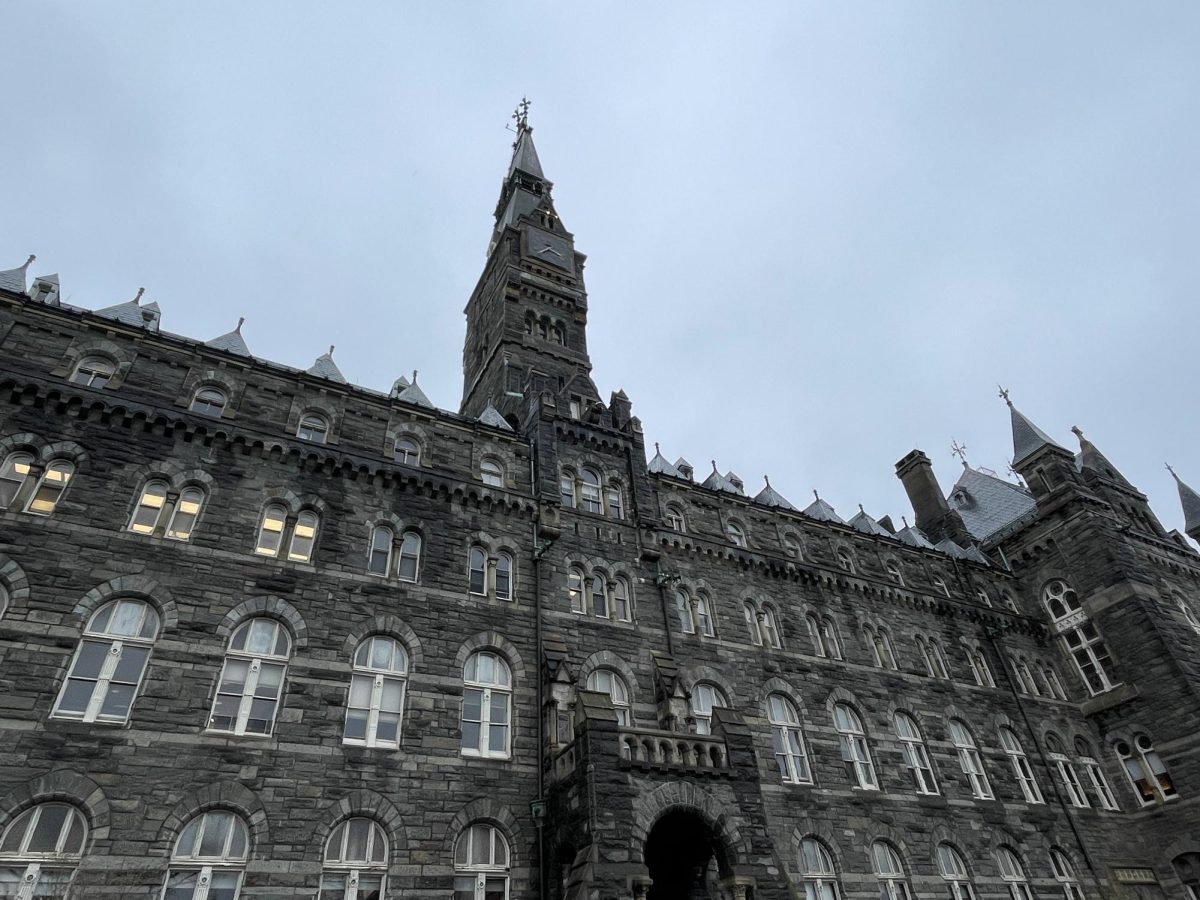
TerraCycle bins, which were originally only located outside Vital Vittles, have now expanded their reach to all four freshman dorms and the Healey Family Student Center.
TerraCycle, a collection program that recycles complex materials, has expanded its presence to all freshman dorms and the Healey Family Student Center since it was established by the Georgetown University Student Association Senate Sustainability Subcommittee last year.
The project, which recycles items that cannot be processed by normal waste streams, is geared towards the needs of college students, collecting items used often by Georgetown students such as Brita filters, ink cartridges and cosmetic packaging. The first location for a Terracycle bin was in the Leavey Center, but the expansion allows students to more easily access drop-off sites.
The sustainability subcommittee first partnered with TerraCycle, a company based out of Trenton, N.J., to begin the project in February 2014.
When the project first began, sustainability subcommittee member Samantha Lee (COL ’17) and other senators worked with Students of Georgetown, Inc. to place their first set of recycling bins outside of Vital Vittles.
“Last year, a few senators and I thought it would be beneficial to start a collection at Georgetown. We worked with the Office of Sustainability to get collection bins. We worked with The Corp to get a location outside of Vital Vittles,” Lee said. “Over the past year, we have expanded our collection. We have a new location in the Hilltoss. We have also added four new locations in each of the four freshmen dorms. We are trying to reach people where they will actually be throwing away these items.”
Lee, who led the project, explained that the TerraCycle program is highly adapted to community engagement.
“TerraCycle set up programs, which they call brigades, and each brigade collects for one specific waste stream,” Lee said. “Their model is based off community involvement, so a school, church or any other community organization can sign up for a brigade and collect for that specific waste stream. They then ship out all the waste that they have collected, which gets recycled.”
TerraCycle has also continued to gain interest from other students in GUSA since its inception. Sustainability subcommittee member Theodore Montgomery (SFS ’18), who joined the subcommittee this year, said that he hopes to expand the program by focusing on freshmen.
“The project started last year but rolled out this year in a more comprehensive way. The reason why we focused on freshman dorms specifically is that we want to build awareness around the program and establish and institutionalize it,” Montgomery said. “The best way to do that is to get freshmen involved, as they will be here for four more years. We put our efforts where they would be most effective.”
TerraCycle has also received support from the Office of Sustainability, which provided resources and roused publicity.
Office of Sustainability Director Audrey Stewart expressed her continuous support of the partnership.
“The TerraCycle initiative has truly been student-led, and the Office of Sustainability has been happy to serve as an advisor,” Stewart said. “The initiative contributes to [the university’s] sustainability strategies, both through waste reduction impacts and through providing a great opportunity for members of the campus community to engage with sustainability by making a conscious effort to recycle a wider range of materials. We look forward to learning more about what types of outcomes the program is achieving.”
Other than the funds required for publicity, the subcommittee has not required any other funding. Shipping the items is free at the end of the year, and the program uses recycled boxes that are collected from students for this shipping.
However, the project raises money, as each recycled item is worth one to two cents. Lee expressed her desire to use the money raised for a sustainability project in the future.
“I think TerraCycle is important because not many students know what to do with unusual waste items on campus, and the systems that are in place don’t really function. They are either not there, or it is hard to find out about them,” Lee said. “We want to bring to attention that this is an easy way to recycle these items. We are hoping to use the money we raise in the future to reinvest on campus in some sort of sustainability project.”
Furthermore, Lee expressed the program’s plans to begin working with other organizations on campus to expand the scope of items recycled and people involved.
“We are also looking into new programs, such as working with The Office of Facilities Management to collect and recycle cigarette butts, Hoya Kids to collect children-related items and the [Riggs] Bioethics Library to work with binders,” Lee said.
Executive member of the subcommittee Caroline James (COL ’16) shared Lee’s sentiments about the improvements that need to be made to the university’s recycling system.
“The Georgetown recycling program is developing, but it definitely still has its imperfections. Not just specific to Georgetown, but there are lots of things in our society that we do not really know how to deal with in terms of waste, whereas other societies have found creative ways to make a market for products like this,” James said. “It’s important for people to be assessing these various things that they are throwing away. … Groups like TerraCycle are trying to work with these specific companies, so there are things we can do with this unconventional waste.”
James also stressed the importance of the program’s goal to raise awareness about how unconventional items can be recycled items, as well as the desire to institutionalize the program within the university.
“I would love for more people to know about it. I think we’ve chosen the brigade based on the needs of Georgetown students,” James said. “Our job is to make sure that people know about it. We know that there is a demand for an ability to recycle them especially because these complex items happen to have a big environmental impact. Dealing with nonconventional waste is a very important part of waste management, and so I really hope we can get more people to know about this option.”


















